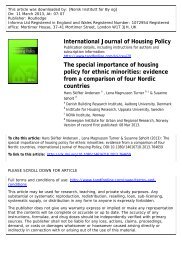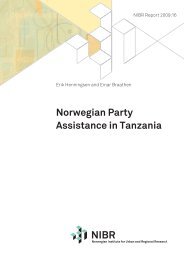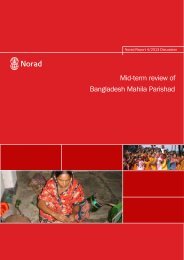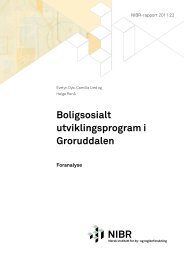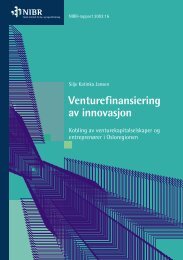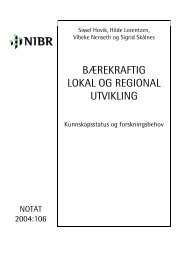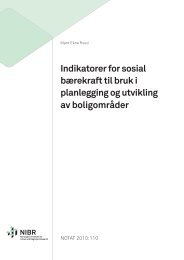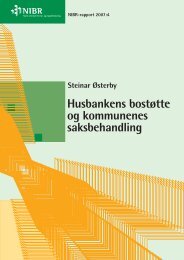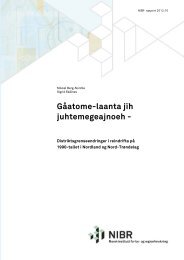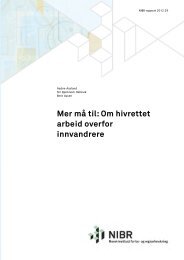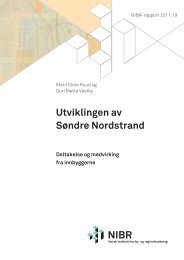Evaluation of the Southern and Eastern Africa Regional Centre for ...
Evaluation of the Southern and Eastern Africa Regional Centre for ...
Evaluation of the Southern and Eastern Africa Regional Centre for ...
- No tags were found...
You also want an ePaper? Increase the reach of your titles
YUMPU automatically turns print PDFs into web optimized ePapers that Google loves.
context <strong>of</strong> increased dem<strong>and</strong> <strong>for</strong> higher skilled people in <strong>Africa</strong>, <strong>the</strong> course iscontributing significantly to meeting <strong>the</strong> dem<strong>and</strong> <strong>for</strong> <strong>and</strong> by skilled <strong>Africa</strong>ns.Ano<strong>the</strong>r key trend appears to be <strong>the</strong> high increase in graduates going into <strong>the</strong>University sector. This pattern was particularly noticeable in Kenya <strong>and</strong> which wasconfirmed in interviews (see later on regional capacity). In addition, consultancy in<strong>the</strong>se different arenas is ano<strong>the</strong>r key development. All <strong>of</strong> <strong>the</strong>se developmentsconfirm greatly enhanced level <strong>of</strong> skills <strong>and</strong> with it, opportunities <strong>for</strong> increasedearnings.Conversely, <strong>the</strong>re appears to be a significant movement away from <strong>the</strong> public sector.Though <strong>of</strong>f-set to some extent by <strong>the</strong> move into <strong>the</strong> university sector- it none<strong>the</strong>lessreflects an overall net loss to national state sector. There is also movement awayfrom national level NGOs. There is also a very low number from local governmentundertaking <strong>the</strong> course.Graduate mobility across sectors <strong>of</strong> course takes place <strong>for</strong> many reasons <strong>and</strong> shouldbe regarded as af<strong>for</strong>ding graduates higher level opportunities. None<strong>the</strong>less, <strong>the</strong>predominant shift, namely one from <strong>the</strong> public sector, is not necessarily win-winbecause it may weaken <strong>the</strong> duty bearer responsible <strong>for</strong> policy <strong>and</strong> legalimplementation that impact women, namely, <strong>the</strong> state.3.5 Institutional impactEvaluating institutional impact is gauged largely by what individual graduates havedone in <strong>the</strong> respective organisations where <strong>the</strong>y are working. The section identifies<strong>the</strong> range <strong>of</strong> key <strong>for</strong>a where one would expect to find leverage <strong>for</strong> influencing <strong>and</strong>impacting in terms <strong>of</strong> decision-making. Such <strong>for</strong>a include policy-making <strong>and</strong>legislation across state <strong>and</strong> NGO sectors <strong>and</strong> o<strong>the</strong>r related areas. Fur<strong>the</strong>rmore,graduate contribution is augmented by <strong>the</strong> reflections <strong>of</strong> employees <strong>and</strong> o<strong>the</strong>rstakeholders related to women’s issues to produce a triangulated picture <strong>of</strong>institutional impact (see annex <strong>of</strong> in<strong>for</strong>mants).3.5.1 Graduates in institutional spaces in Zimbabwe, Zambia <strong>and</strong>KenyaWe probed graduate responses in order to ask <strong>the</strong>m to identify <strong>the</strong>ir contributions<strong>and</strong> to correlate <strong>the</strong>se with institutional spaces influential in shaping woman’s legal<strong>and</strong> social status. Like many <strong>of</strong> <strong>the</strong> responses recorded, <strong>and</strong> some <strong>of</strong> whose evidenceis presented in this section, <strong>the</strong>re is a very close link between course approaches <strong>and</strong>its transfer into <strong>the</strong> work place. For some additional examples taken from <strong>the</strong> surveyconcerning graduate publications <strong>and</strong> o<strong>the</strong>r outputs/achievements- please refer toAnnex 5. Though difficult to attribute to <strong>the</strong> Masters alone, respondents did relate awide range <strong>of</strong> impacts to which <strong>the</strong>y claim contribution.29Case Study One: Public spaces- Law, Parliament <strong>and</strong> Police in Zimbabwe, Kenya <strong>and</strong> Zambia



